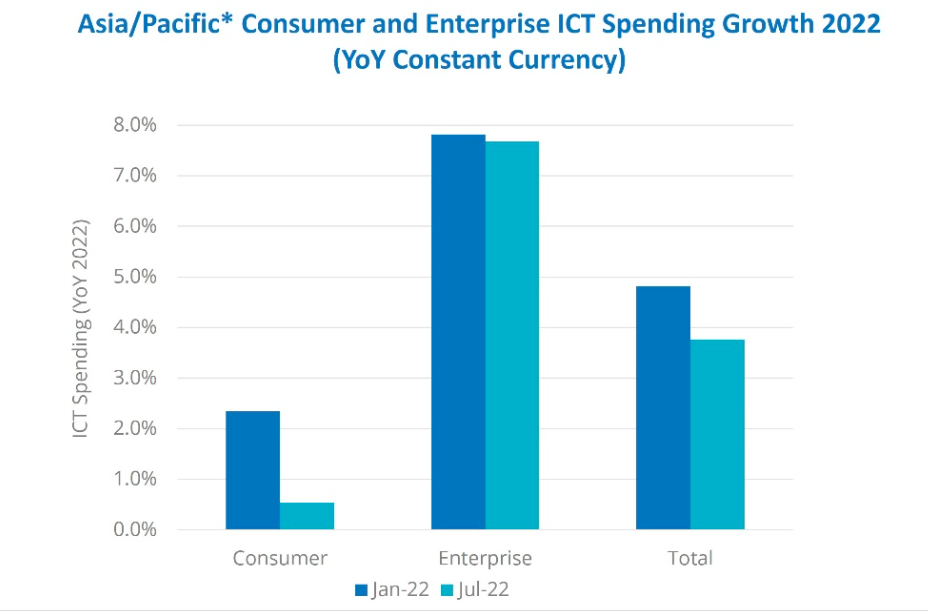China's Economic Shift: Reliance On Consumer Spending Faces Headwinds

Table of Contents
Weakening Consumer Confidence and Spending Power
A crucial factor impacting China's economic shift is the weakening consumer confidence and spending power. Several factors contribute to this decline: high unemployment, particularly among young people; rising living costs, including surging inflation; a downturn in the property market; and persistent geopolitical uncertainty. These elements combine to create a climate of apprehension, leading consumers to curb spending and increase savings.
- Rising inflation: Soaring inflation erodes disposable income, leaving less money for discretionary spending. The National Bureau of Statistics of China regularly reports inflation figures, which consistently show the pressure on household budgets.
- Youth unemployment rates: High youth unemployment rates, which have reached alarming levels in recent years, significantly impact spending. Young adults, typically a key demographic for consumer spending, are delaying major purchases due to job insecurity.
- Concerns over future economic stability: Uncertainty regarding future economic prospects encourages a precautionary saving behavior, reducing immediate consumption. This is amplified by concerns surrounding the property market and geopolitical tensions.
- The impact of the property market slowdown: The property market slowdown has a significant ripple effect, impacting wealth and consequently consumer spending. Many Chinese households have a substantial portion of their wealth tied up in real estate, and a decline in property values diminishes their perceived net worth and willingness to spend.
Shifting Demographics and Changing Consumption Patterns
China's demographic landscape is also undergoing a significant transformation. The country is facing an aging population and a shrinking workforce, impacting consumer spending in several ways. Furthermore, changing consumption patterns among younger generations are reshaping the retail landscape.
- The rise of e-commerce: The rapid growth of e-commerce has dramatically altered shopping habits, challenging traditional brick-and-mortar stores. Platforms like Alibaba and JD.com dominate online retail, leaving many physical stores struggling to adapt.
- Changing preferences towards experiences over material goods: Younger generations are increasingly prioritizing experiences over material possessions, shifting consumption patterns away from traditional goods towards travel, entertainment, and other services.
- The impact of a smaller, aging population on overall demand: A smaller, aging population naturally leads to a decrease in overall consumer demand, creating a further challenge for economic growth driven by consumption.
Government Policies and Their Influence on Consumer Spending
The Chinese government has implemented various policies aimed at stimulating consumer spending, including tax cuts and infrastructure projects. However, the effectiveness of these policies is a subject of ongoing debate, and some have unintended consequences.
- The effectiveness of government stimulus packages: While government stimulus packages can provide short-term boosts, their long-term impact on sustained consumer spending often remains limited.
- The role of fiscal and monetary policies in boosting consumer demand: Fiscal and monetary policies play a crucial role in influencing consumer demand, but their effectiveness depends on various factors, including the overall economic climate and consumer confidence.
- The impact of regulations on businesses and consumer choices: Government regulations can both positively and negatively influence consumer spending, affecting business costs and consumer choices.
Global Economic Uncertainty and its Impact on China's Consumer Market
China's consumer market is not immune to global economic headwinds. Trade wars, inflation in other countries, and geopolitical tensions all exert significant pressure on consumer spending.
- Impact of global supply chain disruptions: Global supply chain disruptions, often caused by geopolitical events or natural disasters, lead to increased prices and reduced availability of goods, impacting consumer purchasing power.
- Effects of international trade conflicts: Trade conflicts can directly impact the price and availability of imported goods, affecting consumer spending on both essential and discretionary items.
- Influence of global inflation on import costs and consumer prices: Global inflation significantly increases import costs, leading to higher consumer prices and further reducing disposable income.
Conclusion: Navigating the Headwinds Facing China's Consumer-Driven Economic Shift
In conclusion, China's shift towards a consumer-driven economy faces significant headwinds. Weakening consumer confidence, shifting demographics, the effectiveness of government policies, and global economic uncertainty all present considerable challenges. While the potential for future growth remains, navigating these obstacles requires a nuanced understanding of the complex interplay of these factors. Staying informed about the ongoing developments in China's economy and the evolution of its consumer market is crucial. Further research into the effectiveness of specific government policies and the long-term impact of demographic shifts on consumption patterns is needed to gain a more comprehensive understanding of the future of China's consumer-driven growth. Understanding the challenges to China's economic reliance on consumer spending is essential for both investors and policymakers.

Featured Posts
-
 Unclaimed E1 Million Lotto Jackpot Winners Location Revealed
May 28, 2025
Unclaimed E1 Million Lotto Jackpot Winners Location Revealed
May 28, 2025 -
 The Unfolding Bond Crisis What Investors Need To Know
May 28, 2025
The Unfolding Bond Crisis What Investors Need To Know
May 28, 2025 -
 Hailee Steinfelds Pregnancy Rumors Fact Or Fiction
May 28, 2025
Hailee Steinfelds Pregnancy Rumors Fact Or Fiction
May 28, 2025 -
 Waspada Hujan Prakiraan Cuaca Bandung Dan Jawa Barat 26 Maret
May 28, 2025
Waspada Hujan Prakiraan Cuaca Bandung Dan Jawa Barat 26 Maret
May 28, 2025 -
 Ipswich Town Weekly Report Mc Kennas Rise Phillips And Cajustes Setbacks
May 28, 2025
Ipswich Town Weekly Report Mc Kennas Rise Phillips And Cajustes Setbacks
May 28, 2025
